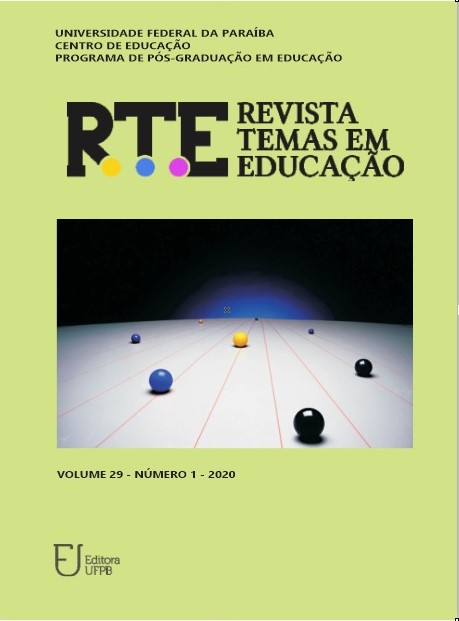SUMAK KAWSAY / SUMA QAMAÑA: SOCIETY AND CULTURE ALTERNATIVE HORIZONS FROM THE IMAGINARY OF THE ANDEAN INDIGENOUS PEOPLES
SUMAK KAWSAY / SUMA QAMAÑA: SOCIETY AND CULTURE ALTERNATIVE HORIZONS FROM THE IMAGINARY OF THE ANDEAN INDIGENOUS PEOPLES
DOI:
https://doi.org/10.22478/ufpb.2359-7003.2020v29n1.50868Keywords:
Good Living / Living Well, Education, Indigenous Peoples, Ecuador –BoliviaAbstract
The sociopolitical dynamics generated due to the ‘refoundation of the States’ (Sader, 2008; Santos, 2010), experienced in Bolivia and Ecuador during the first decade of the 21st century, presents important transformations in educational perspectives for those countries. Starting on alternative paradigm to the western development model, that is derived from the imaginary of the Andean indigenous peoples (expressed as "Good Living" - Sumak Kawsay in Ecuador and as "Living Well" - Suma Q'amaña in Bolivia), education has acquired new senses and functions. These thoughts entered the public debate and were incorporated into the new constitutions of Ecuador (2008) and Bolivia (2009) and their educational policies. This article focuses on the origins and foundations of these conceptions. We seek to analyze their meanings and interpretations in the debate on decolonial perspectives in Latin America.
Downloads
Downloads
Published
How to Cite
Issue
Section
License
Authors who publish in this journal agree to the following terms:
. Authors retain the copyright and grant the journal the right to first publication, with the work simultaneously licensed under the Licença Creative Commons Attribution that allows the sharing of the work with acknowledgment of authorship and initial publication in this magazine. . Authors are authorized to assume additional contracts separately, for non-exclusive distribution of the version of the work published in this journal (eg, publishing in institutional repository or as a book chapter), with acknowledgment of authorship and initial publication in this journal.
. Authors are permitted and encouraged to publish and distribute their work online (eg in institutional repositories or on their personal page) at any point before or during the editorial process, as this can generate productive changes, as well as increase impact and citation of the published work (See O Efeito do Acesso Livre).



















